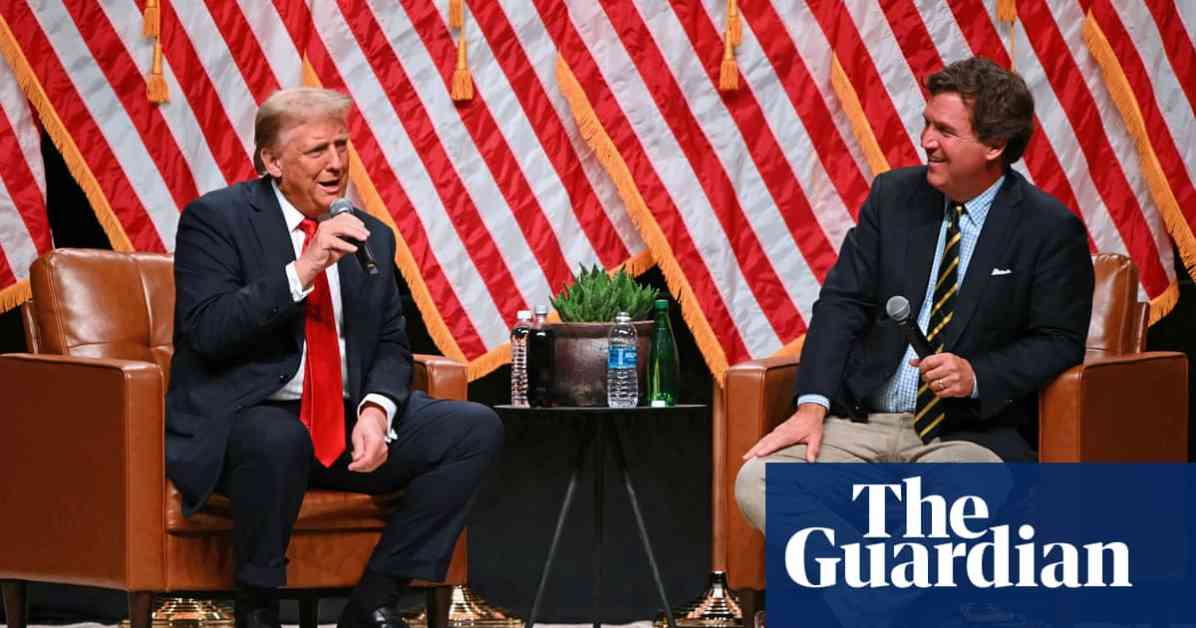Donald Trump recently mentioned in an interview with Tucker Carlson that Elon Musk and Robert F Kennedy Jr could play significant roles in a potential second administration if he were to be re-elected. Musk, the CEO of Tesla who has publicly supported Trump, and Kennedy, who endorsed Trump in August, were singled out by Trump as influential figures without specifying their exact roles.
During the interview in Arizona, Trump also took the opportunity to criticize his opponents, calling Kamala Harris “a low IQ individual” and referring to Liz Cheney as a “radical war hawk”. He even went as far as suggesting that Cheney should be placed in the line of fire to understand the consequences of her hawkish policies.
While Trump was quick to praise his own leadership and disparage his opponents, he avoided delving into specific policy plans or addressing concerns about the FBI and CIA’s alleged bias against him. However, he did express concerns about an “enemy from within” that he believes poses a threat to the country.
In terms of the upcoming election, Trump expressed confidence in his lead and hinted at potential fraud in case of a loss. Despite polls showing a close race between him and Harris, Trump asserted that he was ahead and suggested that cheating could be the only way to prevent his victory.
However, Howard Lutnick, the co-chair of Trump’s transition team, downplayed the likelihood of Musk or Kennedy holding prominent positions in a second Trump administration. Lutnick mentioned that Musk might assist the government in some capacity, while Kennedy, known for his anti-vaccine views, could be involved in health data but not lead the health and human services department.
Overall, Trump’s comments on Musk, Kennedy, and his opponents highlight the contentious nature of the upcoming election and the potential role of influential figures in shaping future administrations. The interview with Tucker Carlson provided a platform for Trump to voice his opinions and rally support among his base, while also raising questions about the direction of US politics in the years to come.












